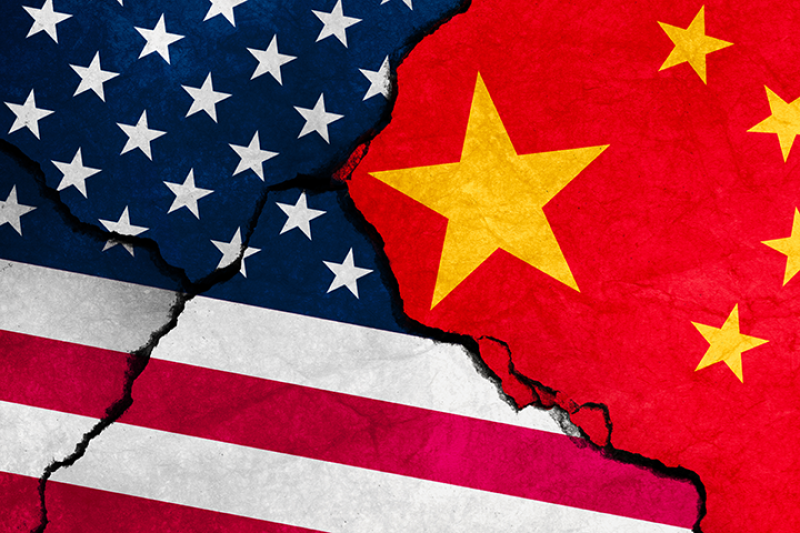New Research Explores the Ramifications of a Rising China

This article appears in the winter issue of University of Denver Magazine. Visit the magazine website for bonus content and to read this and other articles in their original format.
As China has grown its economy and international influence over the last half-century, it has become known as a major world power, working alongside—and sometimes against—the U.S. to advance its interests.
Now, new research from the University of Denver’s Frederick S. Pardee Center for International Futures suggests that China may overtake the U.S. as the world’s greatest power sometime in the next 20 years. If that happens, it will mean a very different world.
To get a handle on that different world—and possibly on how to avoid it—Pardee Center director Jonathan Moyer and his team use the International Futures (IF) model, developed at DU by professor Barry Hughes over a 40-year period, to forecast and examine development within major systems such as economics, demographics and governance.
“We’ve also done quite a bit of work on thinking about how to measure power and influence in the international system,” he says. “This is a really messy, kind of complicated area, because you can’t measure power and influence directly in an aggregate way, for a variety of reasons.”
But the IF model’s index-based approach allows researchers to measure these things—power and influence, specifically—in a more indirect way.
“We create indices that try to approximate measures of power and influence, and then we use those within the International Futures system to forecast what’s the most likely development trajectory,” Moyer explains. “Then, the last bit of the puzzle is to create alternative scenarios. So, we’re not interested in just simply predicting what’s going to happen, but instead, we’re interested in better understanding the range of uncertainty and the things that would have to happen to dramatically shift these development trajectories across time. That’s the focus of this kind of U.S.-China work.”
In most of the scenarios that the Pardee team played out—about 90%—China did overtake the U.S. as the world’s next great power. What would need to happen for the U.S. to remain in that top spot?
Collin Meisel, associate director of geopolitical analysis at the Pardeee Center, says that for the U.S. to remain the world’s No. 1 power, China’s gross domestic product (GDP) growth would have to slow—a lot.
“In the analysis that we did, we did look across a broad range of scenarios, and those included pessimistic growth forecasts for China,” he says. “But some analysts would say that we should be even more pessimistic. And so, if Chinese growth really stagnates, or if current GDP figures are sort of overstated, then there’s a chance that China wouldn’t pass the U.S. as the world’s leading power.”
Moyer says a world with China as the globe’s top power may look quite different than the reality we’re living today. For example, because China’s ambitions are disparate from those of the U.S., international conflicts could be managed in a different way.
“There are lots of other countries that have decent capabilities. The Europeans are still going to be powerful in the future; South Korea, Japan will still be influential in the future,” Moyer says. “And the world’s going to look very different with India. India’s going to be growing dramatically over the next number of years for the same kind of structural reasons. And so how does China deal with India [and Pakistan]—two-nuclear armed countries that have had border conflict?”
Diplomacy isn’t the only aspect of international dealings that could change under China as the world’s leading power. Moyer says the economic relationship between the U.S. and China might undergo some significant re-wiring—a strategic uncoupling of sorts.
“Let’s say you depend on someone for your daily lunch because they make a great sandwich, better than the sandwich you are able to make. If they become a jerk and start withholding that sandwich or raising the price of that sandwich, you’re likely going to make your own sandwich, even though it’s less desirable. Strategic decoupling is kind of like that—you stop depending on someone (or some country, in this case) for your well-being because you’re concerned about how that dependence can be used against you.”
The specifics of the situations aside, the researchers say that one thing is for sure: The countries that matter in the international system are changing, and tools and research can help us better understand how these changes will impact our lives.
